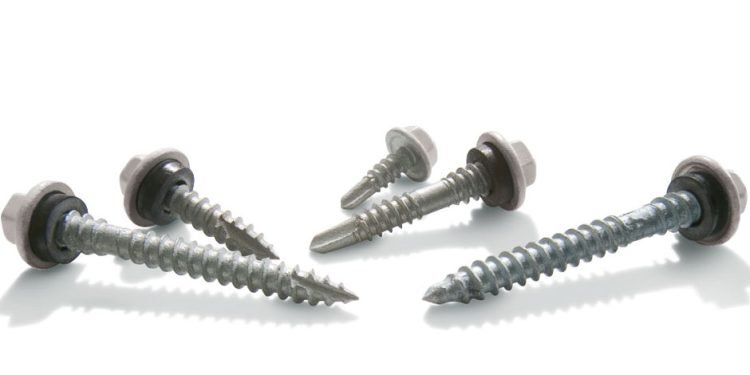Self-tapping screws are an essential component of modern design and manufacturing, and they have increasingly become an integral part of sustainable design and manufacturing. These screws have a unique design that allows them to cut threads into the material they are being fastened into, making them effective for various applications. In this article, we will explore the role of self-tapping screws in sustainable design and manufacturing, including their benefits, challenges, and future potential.
Introduction
Sustainability has become a critical aspect of design and manufacturing in recent years. Sustainable practices aim to reduce environmental impact, increase resource efficiency, and minimize waste. Self-tapping screws have become an essential component in sustainable design and manufacturing, as they offer unique advantages over other fasteners. This article aims to explore the role of self-tapping screws in sustainable design and manufacturing.
Self-tapping screws in sustainable design
Self-tapping screws have numerous benefits for sustainable design. For example, self-tapping screws allow for more efficient use of materials as they require less material for threading. Additionally, self-tapping screws provide a strong, durable connection that can withstand harsh environments, reducing the need for replacements. They are also easy to install and remove, minimizing potential damage to the material they are being fastened into.
Self-tapping screws are commonly used in sustainable design applications such as solar panel installation, green roofs, and modular building systems. Solar panel installations require a durable connection between the panel and its mounting structure. Self-tapping screws provide this connection while reducing the amount of material required for the installation. Green roofs also require a strong and durable connection, as they must withstand various weather conditions. Self-tapping screws provide this connection while minimizing the impact on the roof’s waterproofing membrane. Modular building systems also benefit from self-tapping screws, as they allow for easy disassembly and reassembly of the components, reducing waste and facilitating reuse.
Self-tapping screws in sustainable manufacturing
Self-tapping screws also play a significant role in sustainable manufacturing processes. Self-tapping screws can reduce energy consumption during manufacturing processes as they require less energy to create threads than other fasteners. They can also reduce the amount of waste generated during the manufacturing process, as they require fewer materials to create a connection.
Sustainable manufacturing processes that use self-tapping screws include prefabrication, modular construction, and lean manufacturing. Prefabrication involves the assembly of components off-site before being transported to the construction site. Self-tapping screws are an integral component of prefabrication as they allow for efficient assembly and disassembly of components. Modular construction involves the use of prefabricated components to create buildings. Self-tapping screws provide a durable connection between components, allowing for easy disassembly and reassembly, promoting reuse and reducing waste. Lean manufacturing involves streamlining the manufacturing process to reduce waste and increase efficiency. Self-tapping screws can help achieve this goal by reducing the amount of waste generated during the manufacturing process and reducing the time required to create a connection.
Case studies
Several case studies demonstrate the effectiveness of self-tapping screws in sustainable design and manufacturing. For example, the use of self-tapping screws in modular construction has been shown to reduce waste by up to 90% and reduce the amount of on-site construction time required by up to 80%. The Green Roof Innovation Testing Laboratory (GRIT Lab) at the University of Toronto uses self-tapping screws to connect green roof components, reducing the potential for leaks and minimizing the impact on the waterproofing membrane. The use of self-tapping screws in prefabrication has been shown to reduce material waste by up to 60%.
Challenges and limitations
Despite the many benefits of self-tapping screws in sustainable design and manufacturing, there are also several challenges and limitations that need to be addressed.
One of the biggest challenges is the potential for cross-threading, which can occur when the screw is inserted at the wrong angle or with too much force. This can cause the threads to become misaligned, which can lead to a weak or faulty joint. To address this issue, it is important to ensure that the screw is inserted straight and with the correct amount of force, and to use screws with a higher degree of precision.
Another challenge is the limited range of materials that can be used with self-tapping screws. While they are effective for use with many metals and plastics, they are not always suitable for use with certain materials such as ceramics or composites. In these cases, alternative fastening methods such as adhesive bonding or mechanical fastening may need to be used.
Finally, there is a concern that the use of self-tapping screws may contribute to material waste and environmental degradation if they are not properly disposed of or recycled. While self-tapping screws themselves are often made from recyclable materials, they may be mixed with other materials or coated with chemicals that make recycling difficult or impossible. To address this issue, it is important to design products with end-of-life considerations in mind and to work with manufacturers to ensure that their products can be easily disassembled and recycled.
Conclusion
Self-tapping screws are an important tool in sustainable design and manufacturing, offering a range of benefits including increased efficiency, reduced material waste, and improved product quality. By understanding the science behind how they work and the ways in which they can be used, designers and manufacturers can incorporate self-tapping screws into their processes to create more sustainable and efficient products. However, it is important to also address the challenges and limitations associated with their use, such as cross-threading, limited material compatibility, and potential for environmental impact. Through careful design, selection, and use, self-tapping screws can continue to play an important role in sustainable design and manufacturing for years to come.












